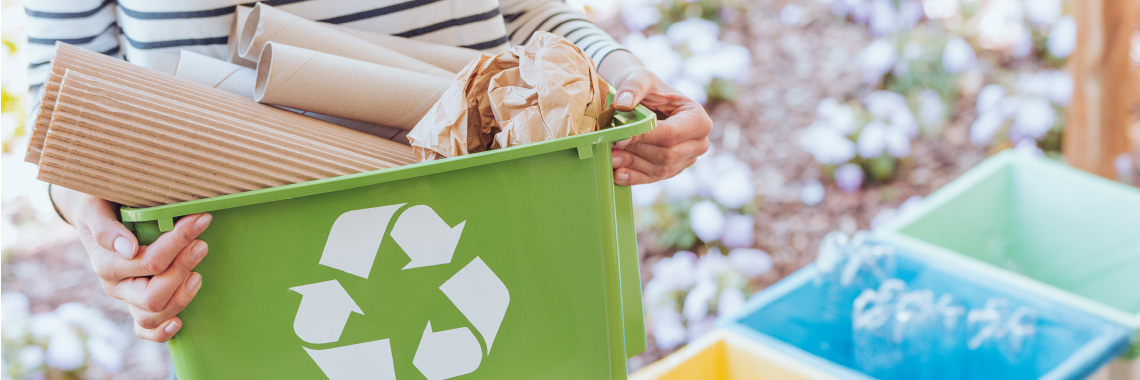Recycling, one of the key strategies to mitigate the human impact on the planet
In a world where environmental preservation has become imperative, recycling emerges as one of the key strategies to mitigate human impact on the planet. We are often faced with the question: «What products can I recycle?» For this reason, below we explore the products you can recycle, illuminating the path towards more sustainable practices.
Paper and Cardboard: The Pioneers of Recycling
From newspapers and magazines to cardboard boxes and envelopes, paper and cardboard are the veterans of recycling. Its reuse not only reduces the demand for wood but also saves energy and water, significantly reducing the environmental footprint. Before recycling, be sure to remove any plastic, metal, or food residue that could contaminate the process.
Plastics: Navigating a Sea of Codes
Plastics are found in a dizzying variety of products, but not all are recyclable in the same way. Identified by codes from 1 to 7, it is crucial to know which types your location accepts in its recycling programs. From drink bottles to detergent containers, recycling plastics reduces pollution and dependence on fossil fuels.
Glass: An Infinite Cycle of Possibilities
Glass is a wonderfully recyclable material, capable of being endlessly reused without losing quality. Bottles, jars and other glass containers can be given new life again and again. However, broken or special glass such as windows and mirrors require different handling due to their composition.
Metals: Valuable and Versatile
Aluminum and steel cans are highly recyclable and represent an important source of reusable material. Recycling metals not only conserves natural resources but also saves energy compared to producing new metals.
Electronics: A Modern Challenge
In our technological age, electronics recycling has become critical. Devices such as phones, computers and appliances contain valuable and potentially hazardous materials that must be handled carefully to avoid environmental damage and recover reusable components.
Textiles: Beyond the Wardrobe
Clothes, towels and textiles in general can have a second life through donation or recycling. Although the process is less direct than other materials, reusing and recycling textiles plays a crucial role in reducing waste.
Organics: From Waste to Resource
Organic waste, such as food scraps and garden waste, offers enormous potential for composting. Transforming these materials into compost enriches the soil, reduces the need for chemical fertilizers and closes the cycle of organic matter.
Contribute to the Circular Market
Recycling is not just an activity; It is an invitation to actively participate in creating a more sustainable future. Every product we choose to recycle becomes a link towards a circular economy, where the end of one product’s useful life is just the beginning of another. By understanding which products we can recycle and acting accordingly, we not only protect the environment, but also foster a more conscious and responsible society.
On the journey towards sustainability, every action counts. Mercado Circular invites you to be part of this movement, recognizing that in our hands is the power to transform waste into resources, closing the life cycle of products in a way that benefits both our planet and its inhabitants. Recycling is, after all, one of the most tangible ways to say «yes» to a greener future.

